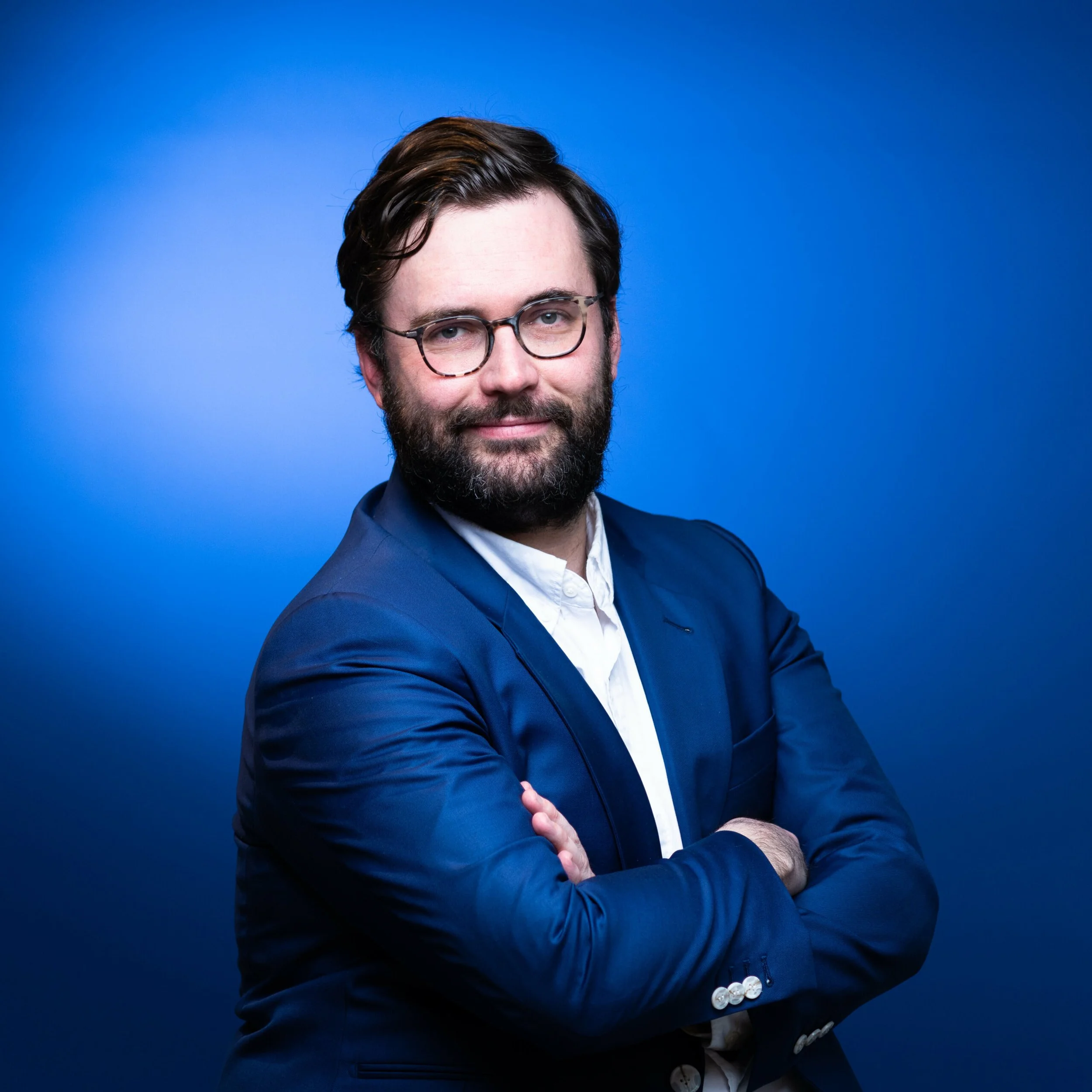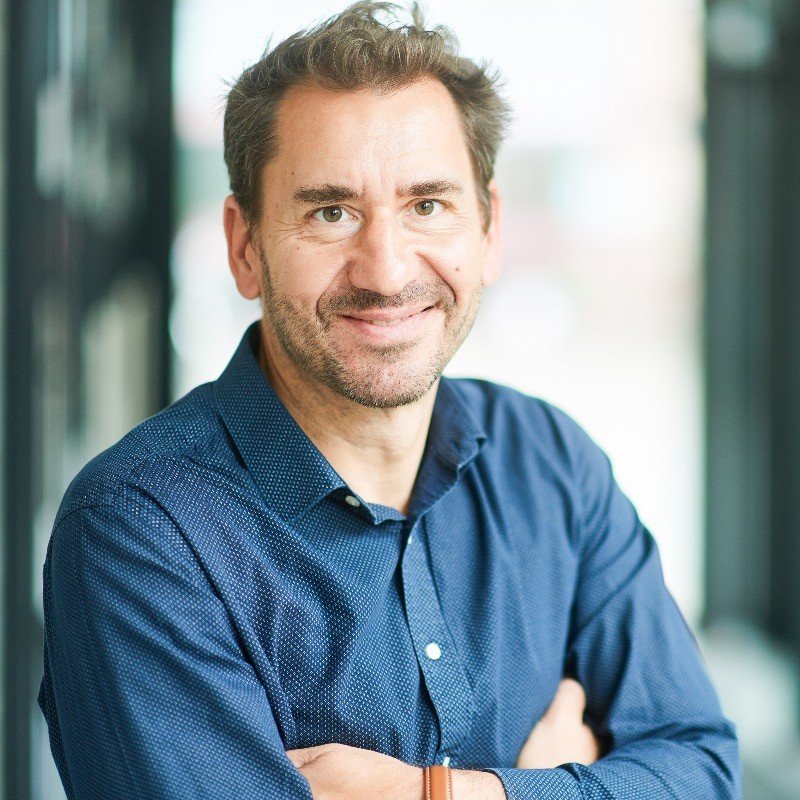Opening remarks
09:00 AM to 09:20 AM
Studio 4
We were delighted to open this conference day with an inspiring introduction featuring Carl Morch, FARI Co-Director. Marius Gilbert, Vice-Rector for Research and Valorization and Vice-Rector for Culture and Scientific Mediation at Université libre de Bruxelles, highlighted the strong spirit of collaboration between the two Brussels-based institutions — Université libre de Bruxelles (ULB) and Vrije Universiteit Brussel (VUB).
Anne Sherriff, British Ambassador to Belgium officially launched the event and set the tone for the conversations ahead.
Meet the speakers
-

Carl Mörch
SPEAKER
FARI Co-director
Carl Mörch is co-director of FARI – AI for the Common Good Institute (ULB-VUB) and a member of the AI Ethics & Law Board of the Federal initiative AI4Belgium. He is also a member of the Ethics Special Interest Group of CLAIRE and a co-chair of CLAIRE Brussels office.
Carl aims at fostering high-quality applied projects related to AI, Data and Robotics that could serve the Brussels Region and its inhabitants. With FARI, he wants to support initiatives that can reinforce education around these technologies, and could help bridge the gap with civil society. In 2020, Carl was awarded a Postdoctoral Fellowship by the International Observatory on the Societal Impacts of Artificial Intelligence and Digital Technologies (OBVIA). He was, from 2020 to 2021, a postdoctoral fellow at the Université de Montréal and at Mila – Québec Artificial Intelligence Institute. He is also a lecturer and adjunct professor at UQÀM (Montréal, Canada). His personal research work is oriented towards the concrete application of high-level ethical principles in applied domains. In general, he is interested in the responsible development of technologies in society, and health care (Psychology and Dental Medicine in particular).
-

Pieter Ballon
SPEAKER
Vice-rector research Vrije Universiteit Brussel (VUB) & Director of imec-SMIT
Professor Pieter Ballon is Professor in the Department of Communication Sciences and Vice-Rector of Research. As director of SMIT (Studies in Media, Innovation & Technology), a joint research center of VUB and imec, he leads one of the largest European social science research groups on digital media and smart technology.
He is also co-founder of the European Network of Living Labs and of the Hannah Arendt Institute. As Vice-Chancellor for Research, he succeeds Karin Vanderkerken. “Whether it's artificial intelligence, sustainability, cancer or fertility research, the VUB has always been pioneering in groundbreaking and relevant research,” he says. “We are going to strengthen that even more.”
-

Marius Gilbert
SPEAKER
Full Professor, Vice-rector of research and valorization, Vice-rector of culture and scientific mediation at Université Libre de Bruxelles (ULB)
Marius Gilbert graduated in Agricultural Sciences at the University of Brussels (ULB) in 1995. He was then a visiting researcher for two years at the Department of Zoology, University of Oxford and obtained a PhD on the spatial epidemiology of a forest insect pest at ULB in 2001. In 2006, he was awarded a permanent academic position with the Belgian FNRS, and joined the university as professor in 2023. In 2016, he founded the Spatial Epidemiology Lab (SpELL), now led by Simon Dellicour. During the COVID pandemic, he joined the Expert Group on the Exit Strategy (GEES) that was assembled by the prime minister Sophie Wilmes to advise the government on the lockdown exit strategy. In September 2020 he joined the team of the rector Annemie Schaus as vice-rector of Research and Valorization, during her first mandate, and with an additional mandate of Vice-rector of Culture and Scientific mediation in the current one.
-

Anne Sherriff
SPEAKER
British Ambassador to Belgium
Anne Sherriff was appointed His Majesty’s Ambassador to the Kingdom of Belgium in 2024.
Anne has previously served in Paris as interim Deputy Trade Commissioner for Europe where she was responsible for supporting British business, trade and investment interests in France and in Dublin as Economic and Global Issues Counsellor where she led on economic, EU and global issues.
Anne has worked extensively on European issues, including as Deputy Director for Western Europe and on the EU’s relations with the Middle East. Anne spent 4 years working as Deputy Director in the FCDO’s Human Resources Directorate, focusing on international HR issues. Anne started her career with the Department of Trade and Industry and spent a year on secondment to the private sector.
Anne has an MBA from the Open University and a BA in History from Stirling University.
